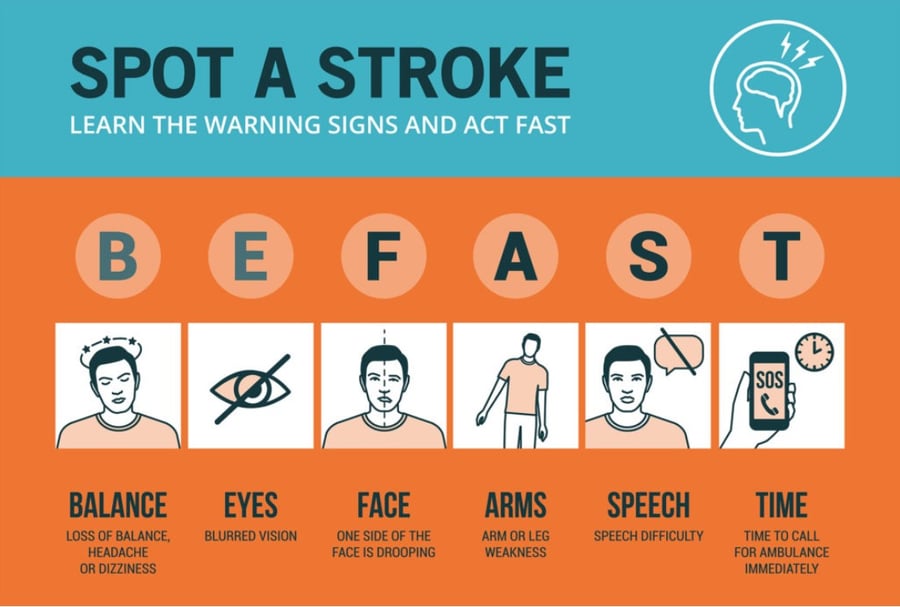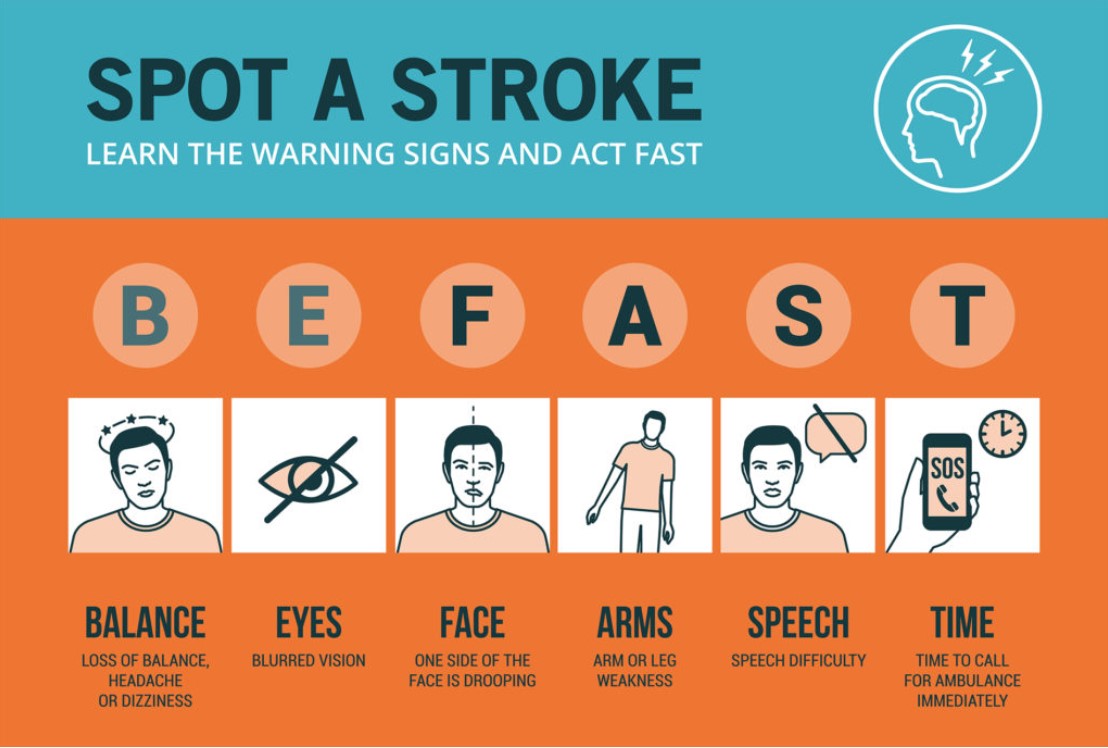National Stroke Awareness Month: Empowering Communities to Prevent and Respond to Strokes

May is observed as National Stroke Awareness Month, a time dedicated to raising awareness about strokes, their prevention, as well as the importance of rapid response in saving lives. Strokes are a significant public health concern worldwide as a leading cause of long-term disability and death. However, with increased knowledge, education, and early intervention strokes can be prevented and their impact can be minimized. National Stroke Awareness Month serves as a platform to promote understanding, encourage healthy lifestyles, and empower individuals as well as their communities to take proactive measures against this devastating condition.
What is a stroke?
A stroke occurs when the blood supply to the brain is interrupted or reduced thereby depriving brain cells of essential oxygen and nutrients. This interruption can be caused by a clot obstructing a blood vessel (ischemic stroke) or a ruptured blood vessel causing bleeding into the brain (hemorrhagic stroke). Strokes require urgent medical attention, as every minute without treatment can result in further damage to brain tissue and worsen the long-term outcomes.
What can I do to prevent strokes?
Many strokes are preventable through lifestyle modifications and the management of risk factors. Some common risk factors for strokes include high blood pressure, smoking, diabetes, obesity, high cholesterol levels, excessive alcohol consumption, and a sedentary lifestyle. By adopting healthier habits such as engaging in regular exercise, maintaining a balanced diet, managing stress levels, and smoking cessation individuals can significantly reduce their risk of stroke.
Recognizing the Signs and Acting Fast
Recognizing the signs of a stroke and taking immediate action is crucial for improving outcomes. The acronym "BE FAST" is a helpful tool for identifying the signs of a stroke:
- Balance: Watch for sudden loss of balance
- Eyes: Sudden loss of vision
- Face drooping: Is one side of the face drooping or numb? Ask the person to smile.
- Arm weakness: Is one arm weak or numb? Ask the person to raise both arms.
- Speech difficulty: Is speech slurred or difficult to understand? Ask the person to repeat a simple sentence.
- Time to call emergency services: If the person exhibits any of these signs, it's important to call emergency services immediately.
National Stroke Awareness Month serves as a reminder that strokes are a significant health concern that can impact anyone, regardless of age. By raising awareness, promoting prevention strategies, and encouraging prompt response to stroke symptoms, we can make a positive difference in reducing the incidence and impact of strokes within our communities. Let us seize this opportunity to empower ourselves and those around us with the knowledge and tools needed to prevent strokes and save lives. Together, we can create a future where strokes are minimized, and everyone has the chance to live a healthy and fulfilling life.
 *Image source: https://stagingwww.stclair.org/stroke-prevention/
*Image source: https://stagingwww.stclair.org/stroke-prevention/
 Dr. Reed is a resident physician who sees patients of all ages and provides obstetrical services at Lone Star Family Health Center, a non-profit 501©3 Federally Qualified Health Center operating facilities in Conroe, Spring, Willis, Grangerland, and Huntsville, and serving as home to a fully integrated Family Medicine Residency Program to increase the number of Family Medicine physicians for Texas and our community.
Dr. Reed is a resident physician who sees patients of all ages and provides obstetrical services at Lone Star Family Health Center, a non-profit 501©3 Federally Qualified Health Center operating facilities in Conroe, Spring, Willis, Grangerland, and Huntsville, and serving as home to a fully integrated Family Medicine Residency Program to increase the number of Family Medicine physicians for Texas and our community.

.jpg?width=500&name=Ruth%20Duesterheft%2c%20M.D.%20(1).jpg)
